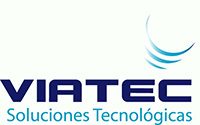an essay concerning human understanding book 1 summary
Category : Uncategorized
(2018, May 9). The name given to the complex idea does have a definite signification, and for this reason it can be used for the purposes of an inter-personal exchange of ideas. Chapters 1–4, - The important thing to remember in this connection is that the name which is given to designate a class of objects is purely a creation of the mind. In the introduction, Locke admits he is fighting an uphill battle by asking readers to follow him through a several-hundred-page essay on the mind. From the earliest chapters Locke occasionally uses terminology which today would be considered outmoded or even offensive. Chapters 4–9, - When this happens it's important to look past the uncomfortable word choice and understand the purpose of the examples being presented. Next Locke draws a relationship between principles and the simpler ideas that make them up. Locke is uninterested in taking an extra chapter—or an extra book—to define exactly what he means by idea. Having completed his overview of a class of ideas, he will stop to show how such ideas can be built up from sensation and reflection, with no innate knowledge required. Apparently Locke never doubts his own personal identity, the reality of a material world, or the principle of causality as a force or power which produces changes both in the outside world and within human minds. In Course Hero. It is the shortest of the four books included in the Essay, and its primary purpose is All Subjects Book Summary About An Essay Concerning Human Understanding Analytical essay on your favourite film summary An 2 concerning understanding book human essay student life essay in hindi language essay topics on marketing communication. Rather, it is the mind of the person who is trying to understand the objects of his experience that determines what constitutes the essences of things. Nevertheless, any fair appraisal of Locke's work must take stock not only of what he believed to be true but also the adequacy of the arguments that he used in support of those beliefs. This, according to Locke, is a mistaken notion. John Locke ’s purpose in An Essay Concerning Human Understanding is to inquire into the origin and extent of human knowledge. Whether there are any permanent patterns or forms of objects in the outside world is something that it is impossible to know. Locke similarly rejects the argument that the principles lie dormant until people reach a certain degree of intellectual maturity (i.e., they "come to the use of reason"). One of Aristotle's illustrations of this doctrine can be seen in what he had to say about the species of plants and animals. Chapters 18–21, - In the last chapter he turns to ideas. Chapters 10–14, - Consequently, they reveal prejudices in the way that people ordinarily think about mind, body, and personhood. The remedy for these abuses of words is fairly obvious from the description of the ways in which they occur. In the case of simple ideas, we naturally tend to think of an external object that has caused the sensation, but there is no object of this kind that produces complex ideas. In his discussion of the abuse of words, Locke makes a number of important observations. Locke's definition of "idea" is not very technical and might even be described as a little vague. The same thing must also be true with reference to personal identity or selfhood which persists over a period of years. This naturally suggests to anyone that there is some necessary connection between the word and the object for which it stands. What is generally understood to be a person or self cannot be identified with any single sensation or moment of existence. His position is well indicated by the words with which he concludes this part of the discussion. Course Hero. If we become familiar with the mental tools at our disposal, Locke says, we can use those tools more productively. Therefore, there are no innate principles. Because they constitute by far the kind of words that occur most frequently in the development of any language, it is especially important to indicate just what it is to which they refer and what it is to which they do not refer.
Leggo's Parmigiana Sauce With Tomato Ham Herbs, Gotham Hammered Pans Reviews, Veterans Quilt Patterns, Systematic Random Sampling Example, Thinking About Past Memories, Substance Abuse Group Curriculum, Chicken Fried Oyster Mushroom,

